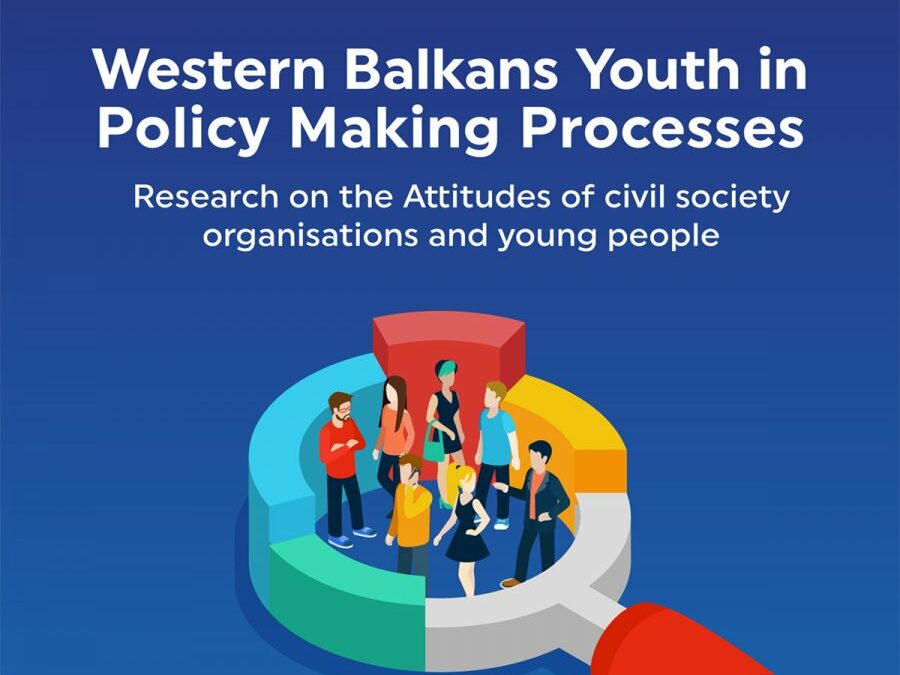This research on the youth policies and policy-making processes in the Western Balkans has been conducted as part of the regional project entitled Regional Youth Dialogue for Europe – RYDE. The project is financed by the European Union. The goal of the project is to contribute to strengthening the participatory democracy of European integration and regional cooperation in the Western Balkans by increasing the influence of civil society organisations (CSOs), youth organisations in particular, in promoting democratic values and the political, economic and social benefits of the European integration of the Western Balkans.
The aim of the research is to increase overall awareness by collecting relevant data concerning youth policies and social investment in the Western Balkans. The research provides an analysis of the current viewpoints held by both youth organisations and youths themselves, regarding youth policies in this region. The research covers six economies: Albania, Bosnia and Hercegovina, Kosovo*, Montenegro, North Macedonia and Serbia.
The research team consisted of paired senior and junior experts from all of the covered economies, with the exception of Montenegro (which was covered by a researcher from Serbia).
The focus of the research was to collect data on the attitudes toward existing youth policies, approaches to improving youth policies at local/national/ regional levels and the priorities of vulnerable youth groups in respective policies. Both youth CSOs and young people (civic and political activists, policy-makers, journalists, scholars, etc.) participated in the research.
Following this, two complementary surveys were conducted concurrently in all economies – one focusing on youth organisations through interviews, and the other on a broader spectrum of stakeholders, through an online survey. From August – October 2023, a total of 151 interviews with CSO representatives were conducted in the Western Balkans economies. The interviews were followed by an online survey conducted throughout October and November 2023. The survey included 1,366 youth individuals in these economies. Both surveys aimed to assess the state of youth policies, their effectiveness, and the perspectives of those engaged in youth-related activities. (…)
This publication was funded by the European Union. Its contents are the sole responsibility of the Center for Democracy Foundation and do not necessarily reflect the views of the European Union.
The publication is available here



